In-ear headphones: ranking of the best and selection rules
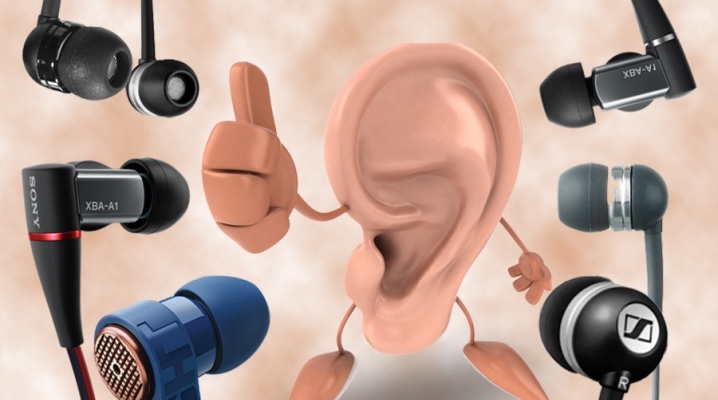
In the modern world, various types of headphones have become essential for both work and leisure. Headphones are constantly used by programmers, music lovers, gamers, they are popular even among schoolchildren. Often this headset is used in a set with players or mobile phones.

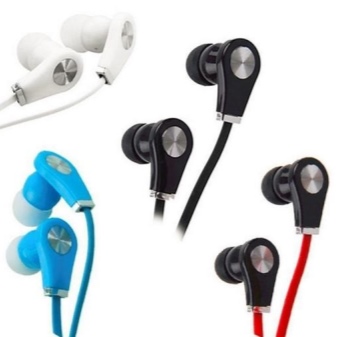
What it is?
Structurally, headphones can be:
- invoices;
- monitor;
- plug-in (in-ear headphones).
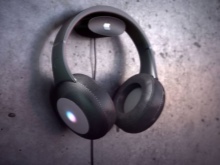
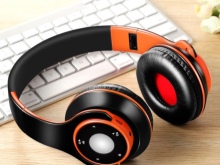
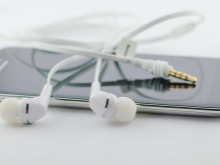
The latter type of headphone is the most popular. The earbuds fit into your ear or ear canal and are held in place by special ear pads. There are earbuds usual ("pills") and intracanal ("plugs"). This division is conditional. Ordinary ones have a small inner part, so outside noises penetrate them easily. The in-ear channels are equipped with an elongated internal structure, and therefore have the best, but far from complete, protection from external noise.
Such penetration into the ear canal does not suit everyone, since there is a feeling of discomfort.
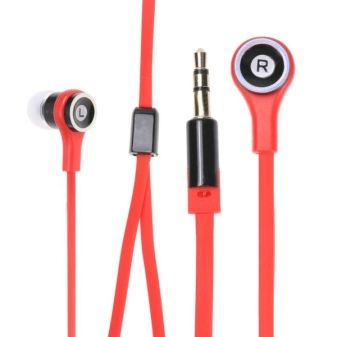
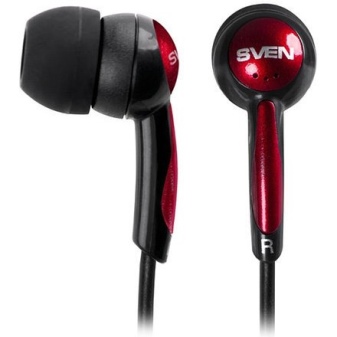
The third is also produced, mixed (swivel) headphone typecombining the advantages of conventional and in-ear devices. This type of product is more securely attached in the ear, and its location quickly and conveniently changes with a simple movement from the intracanal to a more comfortable position inside the auricle. Thus, it is convenient to use the swivel headphones according to the situation in two different modes of operation - "quality" and "comfort".
Considering the level of technical capabilities of devices, it is easy to see that they intended mainly for mobile devices... This means that they are not used with acoustic systems, and not every model can be used in conjunction with conventional computers.
These headphones are designed to work with low-power mobile gadgets - tablets, players, phones and smartphones.
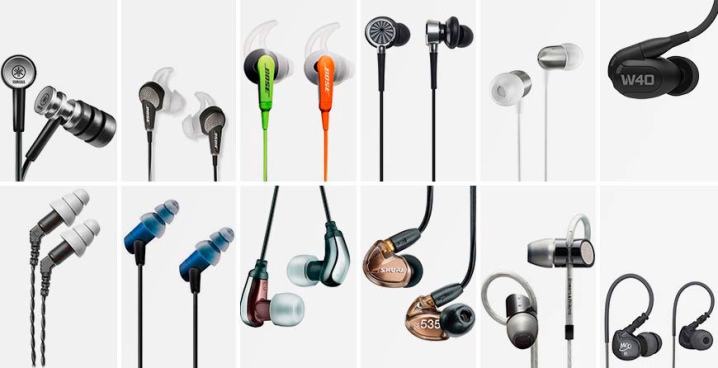
Advantages and disadvantages
The advantage of earbuds is their special sound power. The feeling of this power comes from the placement of the device directly in the ear. But here, too, there are features related to the qualitative side of the issue. This refers to their structure and division into two types.
- Dynamic, with the ability to reproduce a significant sound range with a ringing top and a dull bass. This is the type that most users use to listen to music.
- Rebarthat give a clearer sound, but with a smaller sound range. This type is produced for professional purposes.
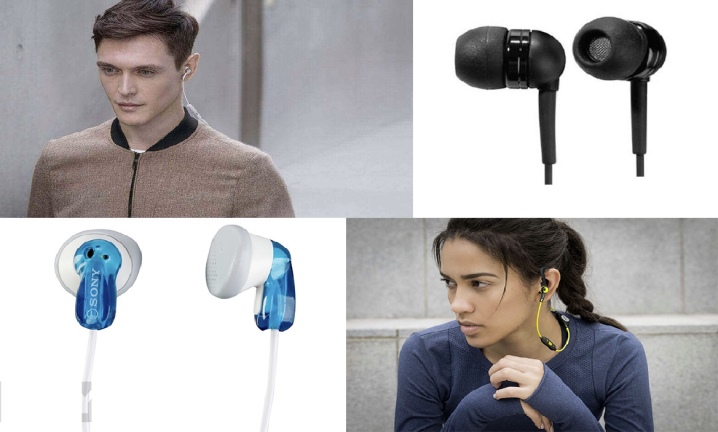
The advantages of earbuds include:
- compactness of devices;
- significant ease of use, invisibility and comfort;
- high sound quality;
- relatively low prices.
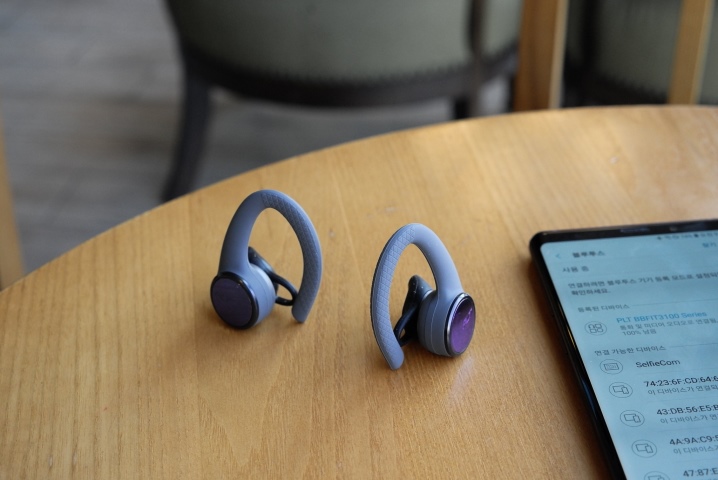
The disadvantages include a low level of sound insulation due to the relative openness of the auricle.
In addition, the earbuds are produced uniform, and therefore may not be securely attached in the ears, since there is a difference in the anatomical structure of the auricles. Manufacturers are trying to overcome this drawback by offering replaceable flexible membranes for different sizes of ears, but this does not completely eliminate the drawback. Membranes themselves have disadvantages, which are important to consider when choosing them:
- not a very convenient form that requires individual selection;
- membranes are a weak insulator of noise, moreover, they are small in size, so they do not always provide good sound quality, especially in transport.

Let's summarize the disadvantages of liners:
- low quality of noise insulation;
- not entirely secure fit;
- lack of devices with "audiophile" sound;
- not always a sufficient level of bass;
- the relative narrowness of the range.
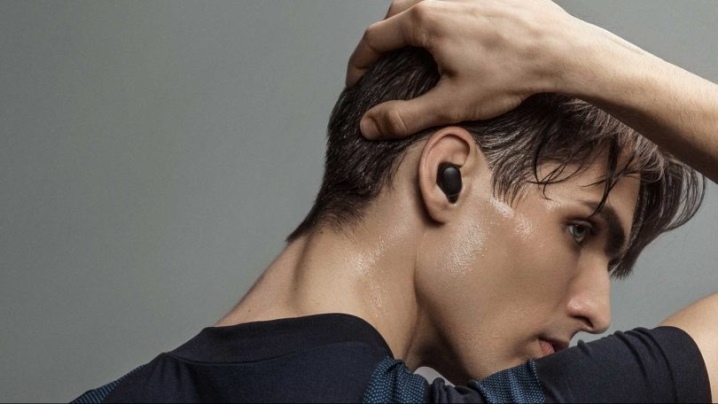
It is important to remember that wearing and listening to headphones, especially when the sound peaks are high, has an extremely negative effect on hearing. The hearing organs are adversely affected by uneven frequency and amplitude characteristics, including those of a resonant nature, coming from a nearby radiator. The physical discomfort experienced by the user contributes to his early fatigue.
In addition, there is a possibility of missing the current sound signal when driving on the road, which could lead to an accident.

Comparison with other species
We focus on comparison vacuum headphones ("plugs") and "pills"... These two types of headphones differ significantly, although they are often referred to as the same group of plug-in devices. It is important to consider the existing differences when choosing headphones for yourself.
"Pills" inserted into the ear shell, and the "plugs" directly into the ear canal. That is, the former are placed in the outer area of the ear, and the latter - in the inner one. In addition, there is almost no noise isolation in the "tablets", which absolutely does not prevent external noise from entering the ear. In order to neutralize noise, the user usually increases the volume level to a peak value, which is fraught with hearing impairment. However, this moment also carries a positive aspect - the ability to control the surrounding sounds. The production of this type of headphones started with the advent of transistor radio devices and personal musical devices. Often they are equipped with rubber ear pads, which makes the products more comfortable.
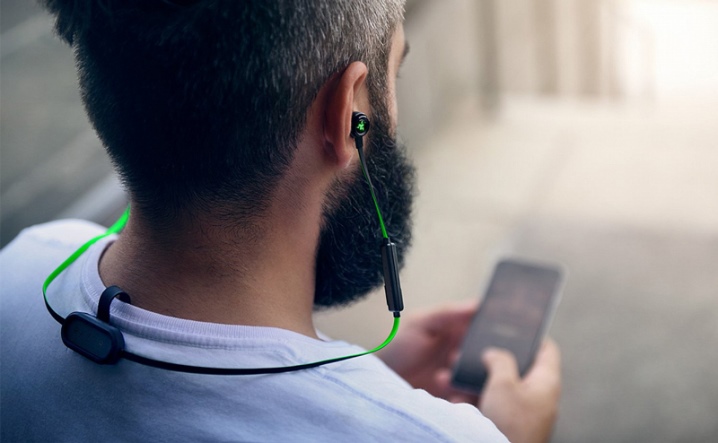
In-ear headphones ("plugs", "vacuum tubes" and others), inserted into the ear canal are called in-ear monitors (IEMs). These are small devices with excellent sound quality used by acousticians and professional musicians. The body parts of this type of in-ear headphones are made of plastic, aluminum, ceramic materials and various alloys.
Vibrating in the auditory canal, they are prone to falling out of the ear, but they provide passive noise isolation of the external environment well. However, this advantage can be a disadvantage, especially when the user is following in a stream of transport. "Vacuums" can be made individually, using special castings of the ear canal.
This technology provides a greater degree of comfort and a higher degree of sound insulation.
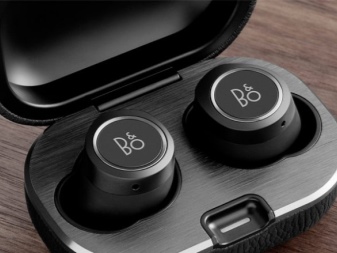
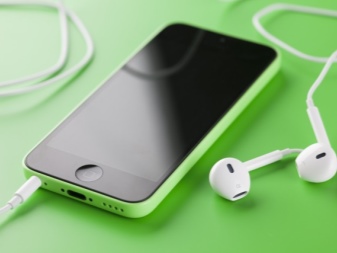
What are they?
By connection methods, devices are divided into two types: wired and wireless. They also come with microphones and volume controls.
Wired
Wired ones are connected to the source with a special cable, which, complete with small radio receivers (FM), can be used as an antenna. When purchasing, the quality of the connecting wire should be carefully checked. Strength, elasticity, sufficient thickness and length of the cord are the main requirements for it. It is better that he has a special braid.

Wireless
The transmission of an audio signal here takes place in an analog or digital format (radio waves, infrared radiation). The digital format is more advanced than analog because it provides lower quality signal loss. These are products with high functionality, there are no restrictions in movement typical for wired devices - Bluetooth options function within a radius of 10 m. Wireless devices are convenient for listening to music and communicating while driving and are able to work with many gadgets, and do not require any or amplifiers.
Nowadays, most modern smartphones and other devices are equipped with Bluetooth-blocks. Their versions are constantly updated, which helps to reduce the energy consumption of devices.
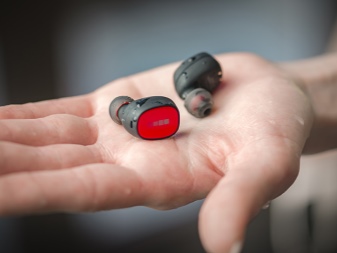
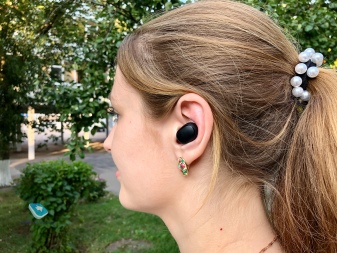
Rating of the best models
The top 10 best products include the following devices.
- Sony STH32 - has a stylish design, variety of colors, high sensitivity (110 dB) and pleasant bass. The products of this brand are of high quality and reliable. Sony has arguably some of the best wired plug-in devices out there. Semi-open acoustic format with stereo effect. Frequency spectrum - 20–20,000 Hz, impedance - 18 Ohm. Equipped with a microphone fixed to the cable, which, among other things, makes it possible to use it for telephony, when answering inquiries. It is protected from moisture, the volume is adjustable, it has voice control, the function of terminating a call, sorting through melodies, setting a pause. PU tactile. Equipped with 1.2 m cable and convenient plug. The sound is excellent, with high fidelity (Hi-Fi), close to professional, average noise isolation. The presence of a not entirely reliable clothespin is noted.
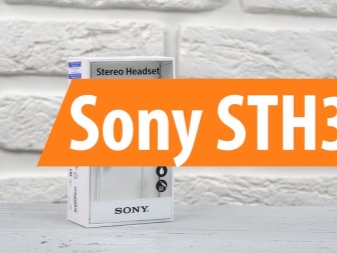
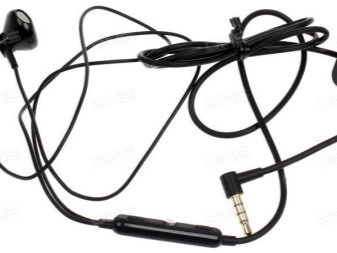
- JBL T205 - the products are relatively cheap (from 800 rubles), the presence of a practical case, high-quality sound reproduction and low weight. A model from a number of top-end and inexpensive earbuds, it is executed in several color versions, in a closed acoustic format, which is an advantage. The frequency spectrum is 20–20,000 Hz, with good bass. Microphones are securely attached to the cable, used for telephony. The cable is 1.2 m long, reliable. The build quality is high. The product is non-moisture resistant. There are no volume buttons on the PU.
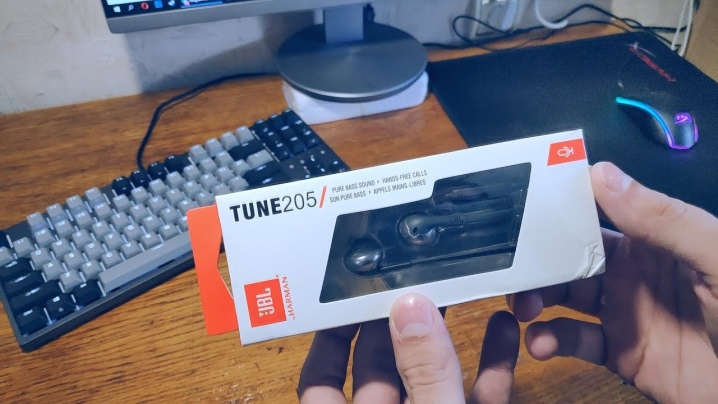
- Honor flypods - devices from among the representatives of the True Wireless line, compare favorably with other products in terms of sound quality. They have fast wireless charging and moisture protection. Available in several colors. One of the top-end Bluetooth earbuds with a frequency range of 20–20,000 Hz. They are capable of autonomous operation for 3 hours at a distance of 10 m from the main unit and up to 20 hours with recharging. The rechargeable device (420 mAh) and the USB-C socket are located in the case. The headset is touch-sensitive, there is a pause. The device is compatible with iOS and Android products. The sound is distinguished by its purity and rich bass timbre. The product loses little to similar devices from Apple. The volume level does not change in touch mode.
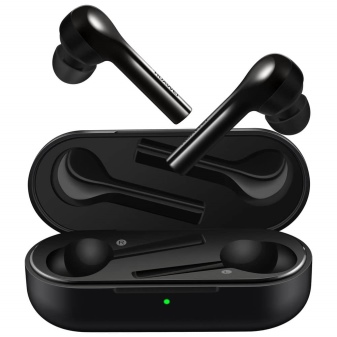
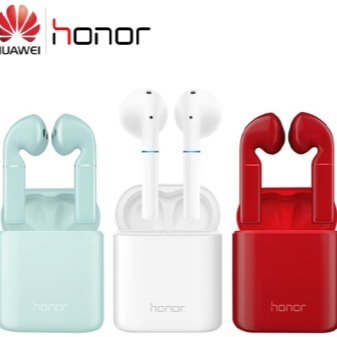
- Apple AirPods - a wireless device connected to the main unit via Bluetooth (working radius - 10 m). Frequency spectrum - 20-20000 Hz, degree of sensitivity - 109 dB, impedance - 20 Ohm. Decorated in a closed acoustic format, with a microphone. The sound is excellent. Controlled by touch or through the Siri voice assistant. There are functions of noise reduction, fast charging, accelerometer. The product is of high quality, comfortable to wear, with quick recharge. These are the most expensive products of this kind.
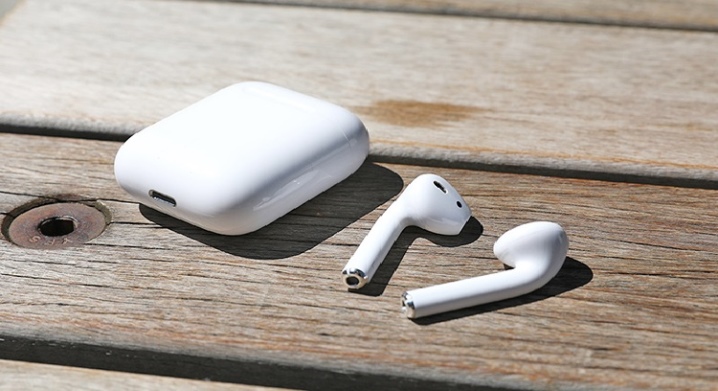
- JBL T205BT - wireless Chinese devices operating via Bluetooth. The cost is low (up to 3000 rubles). There are 7 colors to choose from. Equipped with a microphone attached to the cable. Equipped with buttons for answering telephone inquiries. Impedance - 32 Ohm, sensitivity - up to 100 dB, frequency spectrum 20–20,000 Hz. Comfortable and reliable ear cushions. The built-in power supply provides up to 6 hours of independent work. Communication is stable within a radius of 10 m. Devices for mobile people. Sound quality with low bass. Not protected from moisture.
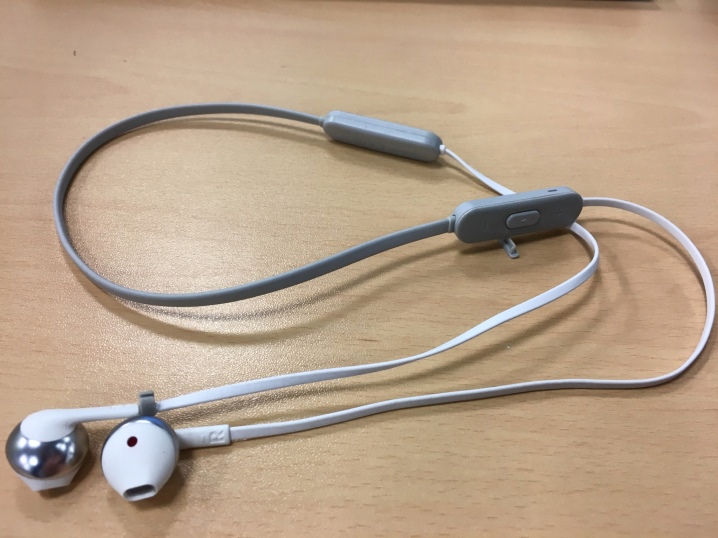
- Huawei FreeBuds 2 - miniature headphones weighing less than 4 g, with wireless charging. Packaged in a charging case. The design is excellent, stylish. The color is black or light with red inclusions. The build is high quality. Equipped with LED indicators, moisture resistant. Frequency spectrum - from 20 to 20,000 Hz, impedance - 32 Ohm, sensitivity - up to 110 dB. Controlled by touch or voice. There is a microphone, noise cancellation. High-quality sound reproduction is noted. They have a short battery life.
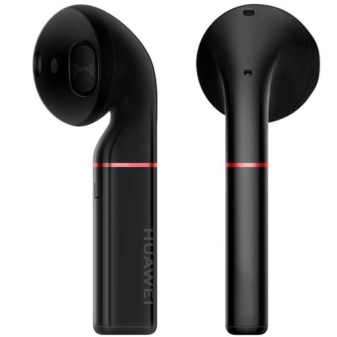
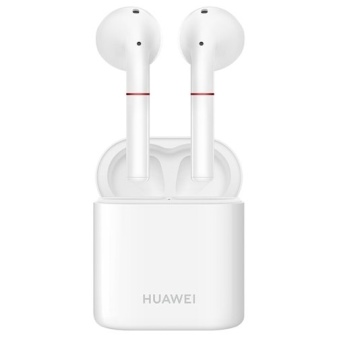
- 1MORE Single Driver EO320 - a successful combination of practicality and the latest technology, takes an honorable leading place among wired earbuds.A special feature is the beryllium diaphragm, which brings a pleasant saturation to the sound. Impedance - 32 Ohm, sensitivity - up to 100 dB, frequency spectrum - 20-20000 Hz. Equipped with a microphone for talking on the phone, buttons for quick music selection, volume control. The set includes 6 pairs of interchangeable ear pads for adjusting the dimensional parameters, a special box for careful wearing. Kevlar braid. However, the construction of the wire is not entirely successful.
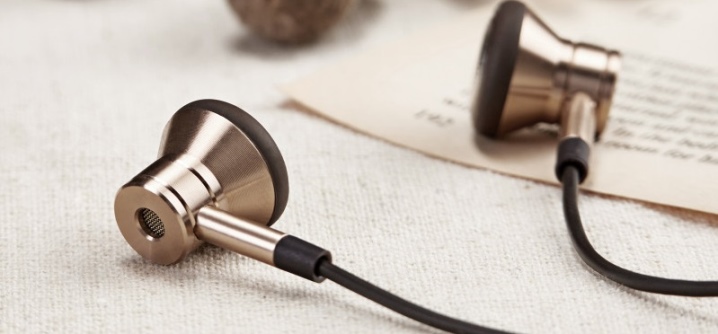
- Xiaomi Dual-Unit - high-quality high-strength products in a ceramic shell. The anatomically designed earbuds do not disturb the covering of the ear cavity and do not fall out due to their special shape. Suitable for both an active lifestyle (sports) and a quiet rest. They have an excellent frequency spectrum - 20-40,000 Hz. Impedance - 32 Ohm, sensitivity - up to 105 dB. Cable length - 1.25 m. Convenient PU. Volume control. High level of impact resistance and low price tag. Noise reduction is weak. The safety nets will soon become dirty.

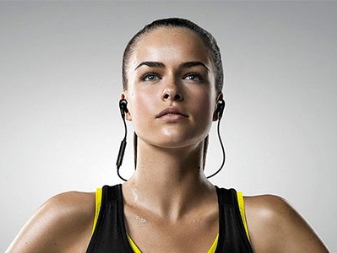
- Philips SHE1350 - a simplified version of devices without microphones (about 200 rubles). Popular name - "indestructible" headphones, they are extremely strong and durable. The sound is of average quality with decent bass. Noise isolation is weak. Small speakers with a sensitivity of up to 100 dB produce sound in the 16 Hz – 20 kHz frequency spectrum. The impedance is 32 ohms. The model mates with other gadgets via a plug. Short cable (1 m.)
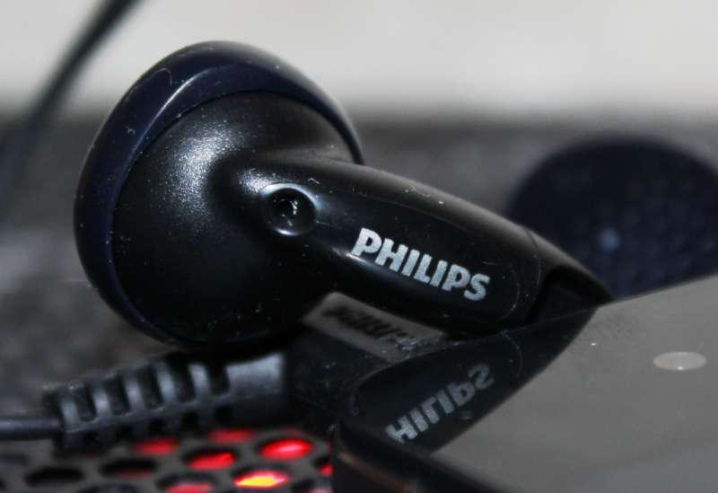
- Panasonic RP-HV094 - produced in an open version of small size and weight (up to 10 g). The design is classic. The operating mode is stereophonic, with a frequency spectrum of 20–20,000 Hz, sensitivity - up to 104 dB, impedance - 17 Ohm. The ear cushions with an extremely soft fit, perfectly fit into the ear. The cable is 1.2 m, it does not get confused, although it is thin. Comes with a case. The price is low.
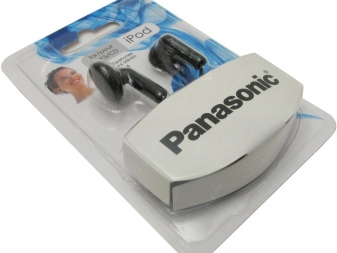
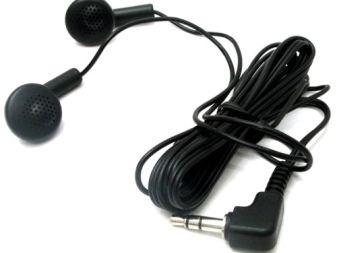
- The best earbuds with microphones and wired pairing is the model Sony STH32. Everything is there - a high-quality microphone, loud and clear sound reproduction with a velvety bass and excellent design. The product is moisture resistant, with a voice dialing function.
- Budget type earbuds JBL T205. Products made in a closed acoustic format, with a low weight, rich sound (700-800 rubles).
- The users considered the model the best Bluetooth earbuds Honor FlyPods, which loses little to AirPods, but slightly lower in cost. The advantages are in the absence of cables, loud enough, but high-quality sound, speed and stability of connection to the main unit, waterproof and wireless charging of the case.
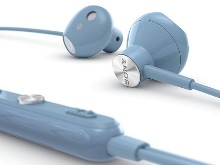
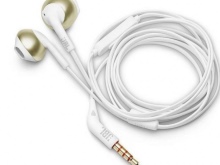
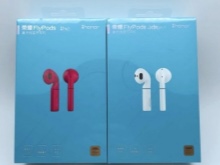
How to choose?
Often, Chinese and other manufacturers do not please us with good quality. Such products are easy to recognize by the characteristic features of cheap plastic, poor-quality processing of devices, the presence of sagging and irregularities, regardless of whether you purchase a device for a computer or a phone.
It is important to investigate the quality of the connection of the constituent elements - it must be tight, without gaps. Otherwise, the product will soon fail.
In the course of choosing devices, we recommend that you follow a number of tips.
- Frequency response - an actual feature of headphones that directly determines the quality side of sound. The optimal solution would be devices up to 20,000 hertz.
- Sensitivity affects the volume level that products can produce. By opting for headphones with a low sensitivity level, you choose a quiet sound - this is not for listening in noisy places.
- Core types... The headphones use magnetic cores - special elements that can also affect the volume. With small diameters of the headphones, they use low-power magnets. A good solution to the issue would be devices that use neodymium cores.
- Connection methods affect sound quality... Wireless options have yet to achieve high sound performance.From this point of view, wired options are better. On the other hand, wireless devices provide more freedom of movement. Choosing this option, it is better to take models with automatic tuning, as well as frequency channel tuning.
- From the point of view of practicality, it is worth evaluating the ease of use - fastening reliability, wearing comfort. It is important to estimate the weight, material of the device, try it on yourself.
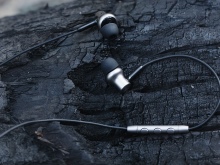
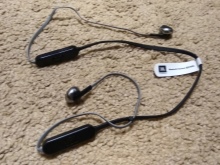
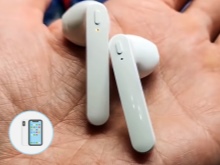
How to wear it correctly?
If the headphones fall out, there may be several reasons, and one of them is incorrect wearing. Often, users do not pay attention to the instructions attached to the product, which often indicate the basic rules for wearing the products. In the general case, it is useful to listen to the recommendations on how to put on the devices correctly.
- To do this, insert, for example, an in-ear earpiece into the ear and press it against the ear canal with the earmold.
- Press it down so that the silicone element partially enters the canal.
- If there is a feeling that the product is not quite tight, you should slightly pull the earlobe, thereby expanding the ear canal.
- Push the device a little deeper into the ear and release the lobe.
- Make sure the device sits comfortably, but the silicone part of the earmold is not fully inserted into your ear. If it is completely gone, then it should be pulled out a little from the channel. If the earmold is stuck in the ear, it is difficult to get it out, so it should not be brought into the canal to the end.
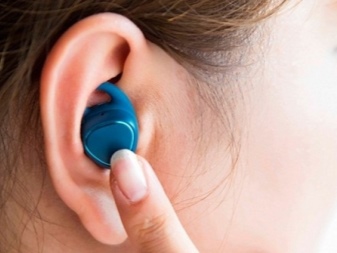
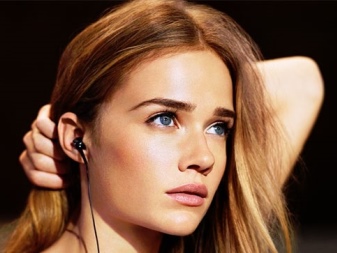













The comment was sent successfully.